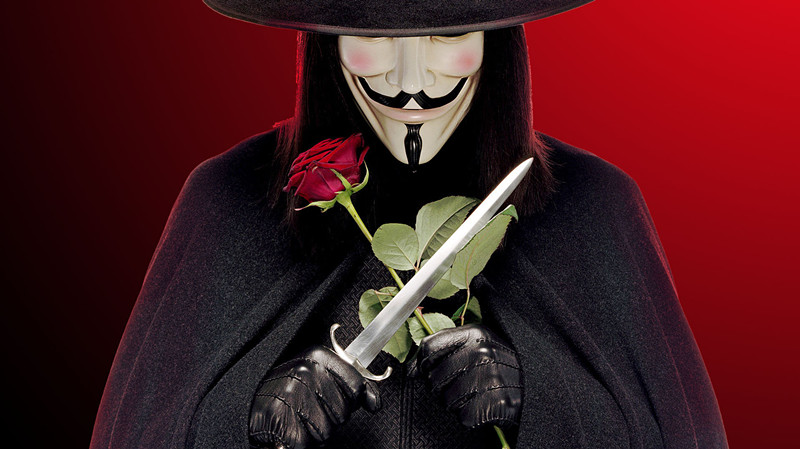
Many authors dream of that moment when Hollywood comes calling. But for a multitude of reasons, an author’s work cannot always be adapted to the letter. The creative licence used when it comes to adaptations is often praised by those responsible for the source material.
However, there are times when this is not the case, and the adaptation becomes a source of contempt for the author. This can result in a simple case of sour grapes, or in a more serious lengthy court battle. It seems that many films that are beloved by filmgoers are not beloved by their authors.
This list looks at some film adaptations where this was the case.
1. Mary Poppins – P.L Travers
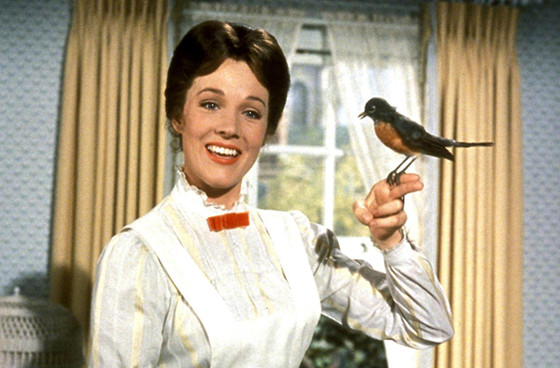
The feud between Mary Poppins author P.L Travers and Walt Disney is so famous that it was turned into a film of its own. Saving Mr Banks stars Emma Thompson as P.L Travers and Tom Hanks as Walt Disney, and tells the story of Walt Disney’s battle to make Mary Poppins the film.
Disney’s daughters had loved the Mary Poppins novels when they were young, and Disney spent twenty years trying to acquire the rights to make a film version – including numerous visits to P.L Travers at her home in England. Disney finally managed to acquire the rights in 1961, under the condition that Travers would be given script approval and allowed to advise on production.
However, Travers’ script edits were disregarded for the most part. She hated the music, some of the casting, the animation sequences and how Mary Poppins’ strictness was downplayed. It was reported that Travers attended a lot of heated meetings regarding the production, and consequently Travers was not given an invite to attend the premiere of the film. She managed to get an invitation after she shamefaced a Disney executive into giving her one.
Reportedly, Travers cried throughout the screening of the film. At the after party, she approached Disney and said, “the first thing that has to go is the animation sequence.” Disney replied “Pamela, the ship has sailed” and walked away. Travers later said, “I cried when I saw it. I said, ‘Oh God, what have they done.’” Travers disliked the film adaptation so much that when she was approached years later about the Mary Poppins musical, she only agreed on the basis that no one from the film version be allowed to be involved in any way. She even had these points stipulated in her last will and testament.
2. Forrest Gump – Winston Groom
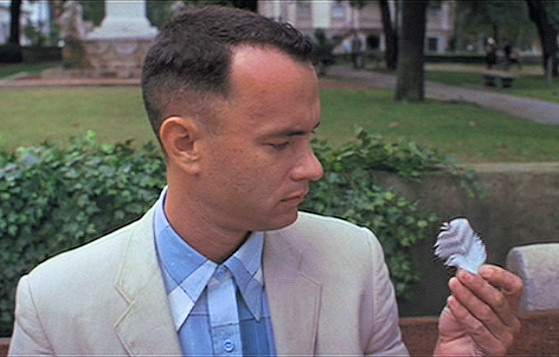
The film adaptation of Forrest Gump won a number of accolades, including six Academy Awards with the Best Picture award being one of them. The film has been recognised on several American Film institute lists and was chosen to be preserved in The Library of Congress’ National Film Registry. It was also a financial and critical success. Yet despite the film’s massive success and impact, there is one person who is not a big fan of it – author of the Forrest Gump novel, Winston Groom.
Groom was contracted to receive a 3% share of the film’s net profits, yet Paramount did not pay him and so Groom sued them. Paramount cited Hollywood accounting to postulate that the film had not turned a profit and had in fact lost money. Tom Hanks and director Robert Zemeckis by contrast, had signed a contract to receive a share of the film’s gross profits. They each received $40 million. Groom was also never mentioned in any of the acceptance speeches at the Academy Awards, and was rarely acknowledged in any press.
Groom was also deeply unhappy with changes made from the novel. Especially changes made to Gump’s character and the removal of some of the edgier content. In the novel, Gump is idiot savant and often uses profanities. The film also sanitises Gump’s sex life. Groom said that the film “took some of the rough edges off.” Groom was so dissatisfied with the film that when writing Gump & Co, the 1995 sequel to Forrest Gump, he started the book with the lines “Don’t never let nobody make a movie of your life’s story.”
3. The Shining – Stephen King
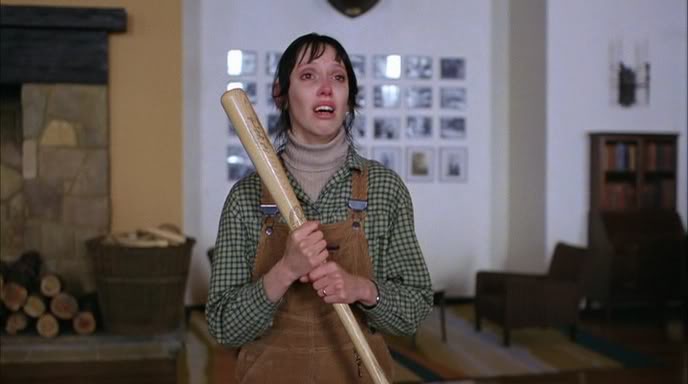
This 1980 film from director Stanley Kubrick is widely regarded as one of the best horror films of all time and has had a massive influence on popular culture. The 1977 novel was written by Stephen King, and despite praising Kubrick’s dazzling work stylistically, King has always upheld his belief that The Shining is one of the poorest adaptations of one of his works. He has even gone as far to say that it was the only adaptation he could remember feeling like he hated.
King’s main criticism revolves around the main characters and the downplaying of the haunted house aspect of the novel. In the novel, Jack Torrance was a decent guy who was struggling with alcoholism and was eventually driven mad. The exclusion of the stronger haunted house element effectively removed Jack’s transformation from frustrated writer to psychopath, making him less likeable and a much less sympathetic character.
King was not a fan of the casting of Jack Nicholson either, citing that audiences would realise that Jack Torrance would ultimately go mad because of Nicholson’s famous role as Randle McMurphy in the film One Flew Over the Cuckoo’s Nest. King was also displeased with how Jack’s wife Wendy was portrayed saying she was “one of the most misogynistic characters ever put on film. She’s basically just there to scream and be stupid. And that’s not the woman I wrote about.”
After feeling like his novel had already been greatly mishandled once, King took a much more hands on approach with the 1997 miniseries adaptation.
4. Sahara – Clive Cussler

The 2005 film starring Matthew McConaughey and Penelope Cruz is adapted from the novel of the same name, and is taken from the series of bestselling novels featuring adventurer Dirk Pitt. The film was a box office bomb, losing over $100 million. It also received poor reviews.
Author Clive Cussler felt that the film’s poor reception and low box office figures was due to the fact that the producers failed to give him control over the script. Cussler claimed that he had been promised “absolute control” over the script but this never happened. Cussler also claimed that there had been breach of contract because the producers had failed to take up the option of a second book.
Cussler sued for $100 million. Cussler was counter sued for “alleged blackmail and sabotage attempts against the film prior to its 2005 release.” Cussler said in a statement regarding the case that he had been continually lied to. The counter claim said that Cussler’s difficult behaviour had contributed to the film’s problems.
When the case went to court, Cussler lost and was ordered to pay legal costs of almost $14 million. This order was later overturned, and Cussler began legal proceedings again to try and recover the money he believed he was owed.
The production company’s lawyer said that “Cussler has never been able to accept the fact that he lost this case.” Eventually both parties met back in court in 2012 to determine a final verdict on the case. Neither party won, with the court declaring that “after years of litigation both sides recovered nothing — not one dime of damages and no declaratory relief.”
5. Willy Wonka and the Chocolate Factory – Roald Dahl
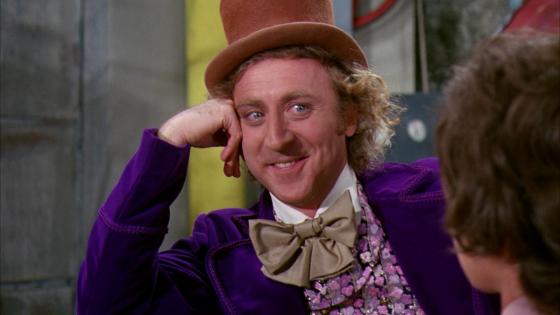
Roald Dahl was notoriously disdainful of the film adaptations of his books, and pretty much hated all of them. He even called the 1990 film adaptation of The Witches, “utterly appalling.” Dahl perhaps most disliked the most famous adaptation of his work – the 1971 film Willy Wonka and the Chocolate Factory, which was adapted from his 1964 novel Charlie and the Chocolate Factory.
Willy Wonka and the Chocolate Factory stars Gene Wilder as the titular character and was released to positive reviews. The film was not financially successful when it was first released, but has gone to generate massive revenue in home entertainment sales.
When the film was released, Dahl refused to have anything to do with it, disowning it completely. The script had been partially rewritten after Dahl had failed to meet deadlines, and Dahl was not happy with the deviations from the book. Dahl was disappointed with the emphasis on Willy Wonka’s character rather than the character of Charlie.
According to Liz Attenborough, trustee of the Roald Dahl Museum and Story Centre, Dahl had always felt that for him the book was about Charlie and his story. Dahl was also unhappy with the casting of Gene Wilder as Willy Wonka. Dahl had wanted Spike Milligan to play the part. Dahl said of Wilder that he was “insufficiently gay and bouncy” and that his casting was “pretentious.”
In 1996, Dahl’s wife commented on his frustrations over the film saying, “they always want to change a book’s storyline. What makes Hollywood think children want the endings changed for a film, when they accept it in the book.” Tim Burton’s 2005 adaptation of the novel shifted the focus back to Charlie over Willy Wonka. Yet it is unlikely that the sequel, Charlie and the Great Glass Elevator, will ever make it to the big screen. Dahl vowed that he would never let any film producers get their hands on it.